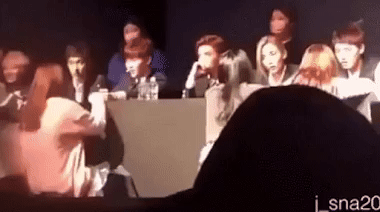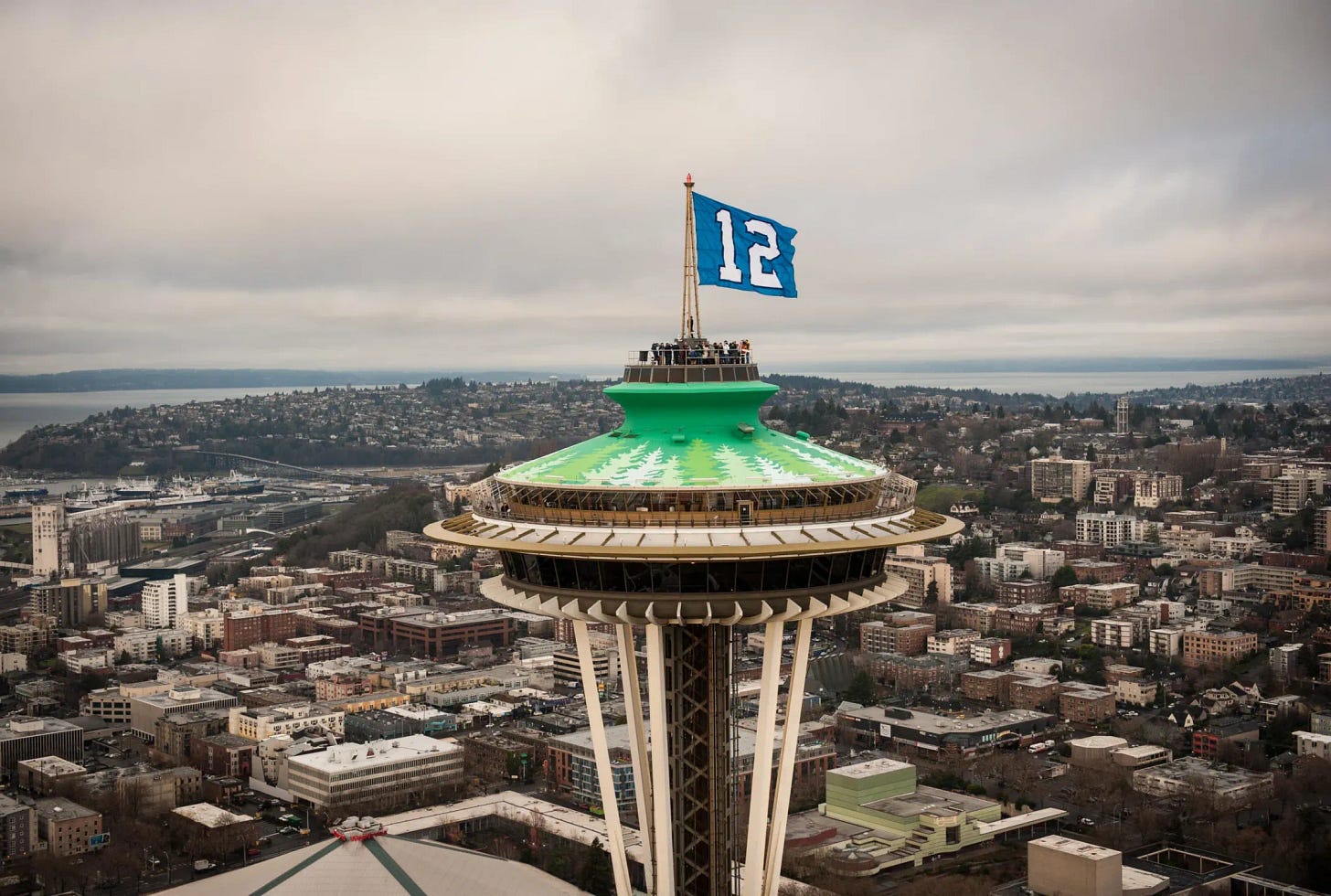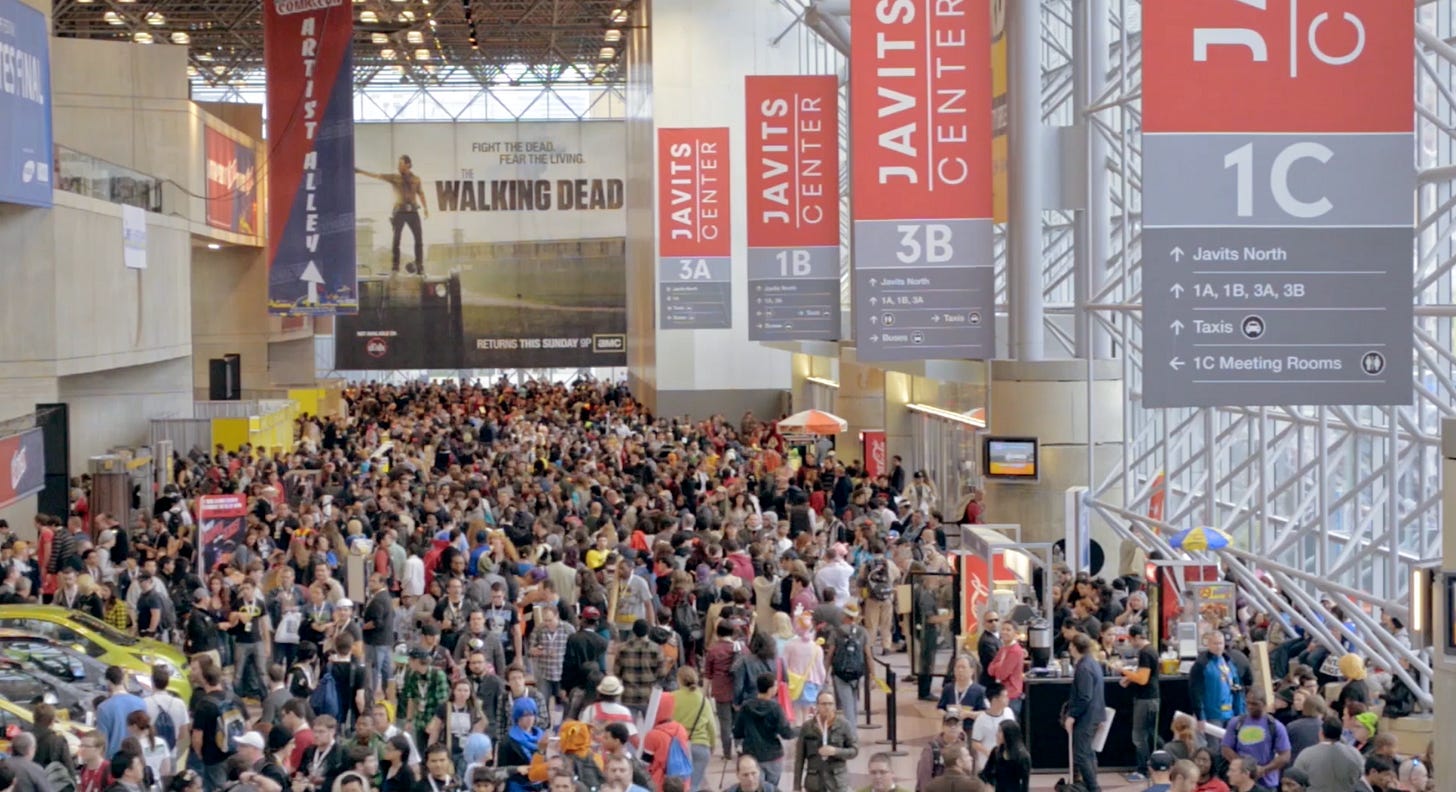Hi! This is a little two-part essay about fandoms, something that I’ve been thinking about a lot since I’m currently working on an outline for a feature that touches upon this concept. This week I’m going into the power of fan culture. Next week I’ll explore how capitalism and consumption culture has affected fandoms. Hope you enjoy!
I’ve always been intrigued by fan culture.
When I first started filming A Brief History of Time Travel, it was originally going to be about experts in the field vs. the fans; or in other words, people who loved time travel movies not because they had a PhD in Physics, but because they loved the idea of it.
That documentary introduced me to fandoms for the first time. I went to my first (of several) comic cons across the country. I met people who loved Back to the Future so much they decked out their Deloreans to look exactly like Doc Brown’s. I met fans who cosplayed as their favorite Doctor Who and know every bit of lore and history.
It was overwhelming and joyful and earnest.
Part of my fascination with fan culture probably comes from the fact that, even though I love going down a rabbit hole (as my friends very well know), I don’t think I’ve ever fanned that hard over anything… except for my secret fanfiction account that I would have DIED before admitting to back in high school.
Even now, when I really get into a movie, like listening to directors’ commentaries, reading interviews, watching behind-the-scenes features or video essays… I don’t consider myself a “fan,” even though I’m clearly participating in fan culture.
(Part of me wonders if that hesitation comes from growing up in the 2010s twitter where everyone was snarky and clever, or maybe it was just the nature of my high school and later, fancy college art school, where being "cool" meant maintaining this air of boredom or aloofness. Earnestness made you cringey.)
Still, I think there’s something really beautiful about fandoms — the way they bring people together around a shared love. I’ve met so many people who became friends because of a mutual love for a music group, a TV show, a game.
At its best, fandom is about community, creativity, and belonging.
But like anything fueled by passion, fandoms can also take a darker turn.
the power (and dark side) of fandoms

BTS fans — otherwise known as the BTS ARMY — are one of the most organized and influential fandoms in the world. They’ve pulled off massive fundraising efforts, organized political movements, and have shown how incredibly powerful fan culture can be.
Perhaps the most well known example of this is all the stuff they did during the pandemic.
In June 2020, BTS and their label donated $1 million to the Black Lives Matter movement. Inspired by this, BTS ARMY launched the #MatchAMillion campaign and matched the donation within just 24 hours.
During the George Floyd protests, the Dallas Police Department encouraged citizens to submit videos of "illegal activity" through a special app.
In response, K-pop fans — including many from the BTS ARMY — flooded the app with fancams and unrelated videos, essentially crashing the system and rendering it useless for police surveillance.
It’s genuinely incredible what fandoms, when organized, can accomplish.
But fandom also has a darker side.
In K-pop culture, there’s even a specific term for this: sasaengs — obsessive “fans” who cross personal boundaries and sometimes engage in disturbing, stalkerish behaviors.

These are such a few of the many examples of typical sasaeng behavior I found online:
Shaving their heads and cross-dressing to infiltrate male bathrooms their idols were using.
Renting the same vans and parking in the same places to intercept or even attempt to kidnap their idols.
Setting up hidden cameras in hotel rooms where idols were staying.
One of the most infamous incidents involved an anti-fan sneaking backstage and giving her idol a drink laced with super glue, sending him to the hospital!
Especially now, with social media, parasocial relationships are easier than ever to form.
First coined in the 1950s to describe the one-sided relationships audiences form with media figures, parasocial relationships create a sense of intimacy that feels real, even though it isn’t reciprocal.
These days, the term has exploded in relevance, especially with the rise of platforms like TikTok, YouTube, and Instagram.
It’s incredibly easy to stalk your favorite celebrity online, follow their every move, watch their stories, comment on their posts… You can convince yourself that you know everything about them.
And if you have the money, you can take it even further: attending overpriced meet-and-greets, or, in some cases, paying insiders under the table for private information like flight numbers and hotel bookings.
I have so many more thoughts about this, especially around capitalism, consumption, and how that relates to fandoms, which I’ll dive into in part two next week!
final thoughts

I like to call Seattle a “city of fans”. People here go really hard into their hobbies.
My theory (and I have absolutely nothing besides anecdotal evidence to back this up) is that a lot of people working in tech don’t derive much personal identity from their jobs. So they pour all of their energy into their “extra curricular” activities like rock climbing, biking, video games, films, craft cocktails, cooking, etc etc etc with incredible intensity.
And while this is can be charming, I think it becomes concerning when your hobbies become your entire identity. But my question I’m posing to you (and to myself, as I’m working on this feature pitch/outline!) is:
Where’s the line between your passion and your identity, and what happens when that line disappears?
Anyway, cheers! Leave me a comment and tell me what you’re a fan of.
Love,
Gisella xx
what i’m consuming 🍰
I’ve been describing Sinners as a southern-gothic-vampire-musical-camp-western, but even that doesn’t even cover it.
What’s amazing is how Ryan Coogler negotiated for all rights to revert back to him after 25 years, something incredibly rare (and fitting, considering the metaphor at the heart of Sinners could be how Hollywood can suck the life force and creativity out of artists).
What I really admire though, is how clearly you can see the trust and history among Coogler’s crew. In interviews, he refers to his composer Ludwig Göransson as “family” as seen in this Indiewire podcast, and Autumn Durald Arkapaw, the cinematographer, says in this Deadline article:
“There was a lot of heart in this project, and the people he asked to make it are like family; some are actual family members. So there was a great deal of weight and responsibility we carried with us behind the work.”
Honestly, I think the film’s strength comes not just from the individual talent, but from the relationships Coogler has built throughout the years, and the care, respect and love he has with his collaborators.
who i am
Hi, I’m Gisella! I’m a repped screenwriter based in Seattle. I directed a feature-length documentary and most recently, my pilot Body Brokers was on the 2024 Blacklist Latine List. Follow me on my journey to get my first screenplay green lit 💚






Food for thought. Thanks for writing this. The power of groupthink within them is fascinating but also dangerous.